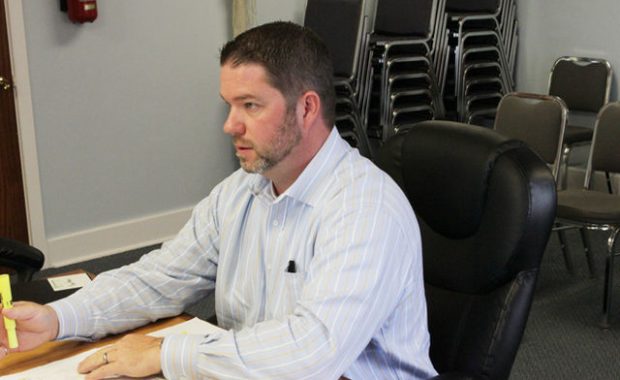BARRY’S BAY – The water, wastewater waste management committee met for their regularly scheduled meeting on August 15. At the meeting, discussions about Ontario Clean Water Agency (OCWA) and a locally owned and operated organic waste reactor continued from a previous meeting in July.
OCWA NEEDS COMPUTER UPGRADES
Kevin Chapeskie, of OCWA, was on hand to discuss some needed upgrades for the computer located inside of the water plant.
As the local water and sewage plant both use an advanced computer data-tracking system called Supervisory Control and Data Acquisition (SCADA), certain hardware upgrades are required to keep the plants running and monitored.
The new computer, along with needed software and hardware upgrades, would cost $15,139.75 with shipping and taxes.
“The computers run 24/7 so they don’t last as long as the computers you would have in your home or office. Basically, the purpose of the computer is for the oversight of the water plant and the sewage plant has the same thing. They track everything that’s generated by the facility and record it. It’s basically all of your compliance data,” Chapeskie noted.
Committee member Linda Neuman wondered if a software update might work instead of a full hardware replacement.
“Don’t these computers have software updates? The update is not as much money as buying a new computer, usually,” Neuman noted.
Chapeskie explained that the new system would have a software update, as the original SCADA software is quite costly.
“The original program is close to $40,000 so what we are proposing is actually an upgrade of the software, but the computer needs to be upgraded too,” Chapeskie noted.
Chairman Shaun O’Reilly was concerned that due to the surprising nature of the expense, and because it wasn’t allotted within OCWA’s proposed budget, it could be difficult to approve.
“In our budget, we had committed to $1,192 for computer expenses at the water plant. There was no money allotted for any capital expenses. I think it is a capital expense, as it’s certainly not an operating expense,” O’Reilly noted.
O’Reilly delved deeper and asked Chapeskie what OCWA has been doing in the meantime to keep the existing computer working.
“We’ve been fixing the computer but it’s costing more on a per item basis to fix the computer than to get a new one. The repairs come out of our contingency. If we have an inspection, we won’t have the proper data to give to the inspectors,” Chapeskie noted.
O’Reilly wanted to know the extent of what would happen if an inspection was failed.
“Will you go to jail for that?” O’Reilly asked.
“No, I won’t,” Chapeskie added.
“Well then, I’m willing to take that chance,” O’Reilly answered.
The committee decided that continued repairs on the existing computer system are more financially responsible than the purchase of a brand new computer.
CONTINUED ORGANIC WASTE REACTOR DISCUSSIONS
Tyler Peters, president of Greenview Environmental Management, was on hand to discuss the concept of an organic
waste reactor, or in-vessel system, that would be built within the township.
Peters, working as a third-party, contacted several different companies who build and distribute these reactors all over Canada.
As part of the parameters of the project, the township had Peters stress to these companies that they desire a partnership and not just the sale of a product.
Three companies that responded and are interested in the project are DB Environmental Enterprise Ltd. And X-Act Systems, Vertal Inc. and Wright Environmental Management Inc.
Peters provided a document that detailed the costs associated with each company and a list of questions that the township had asked to each proponent.
Also addressing the issue of proper treatment of the ‘feedstock’, which is essentially raw material that supplies or fuels a machine or industrial process, Peters mentioned that two of the companies wanted a covered facility for the reactor.
“There are recommendations from Vertal and X-Act to have covered buildings for feedstock and to manage the moisture within the feedstock,” Peters added.
All three companies also provided a continuous system model, which would have a machine running constantly, as opposed to a batch system model which only operates on a load by load basis.
“All three technologies require some pre-processing, but they are all continuous, which will be good for the winter months. As materials come to the site, there needs to be time to mix the material so that it can be placed into the unit to be composted,” Peters said.
Story continues in the August 22 issue of The Valley Gazette.
